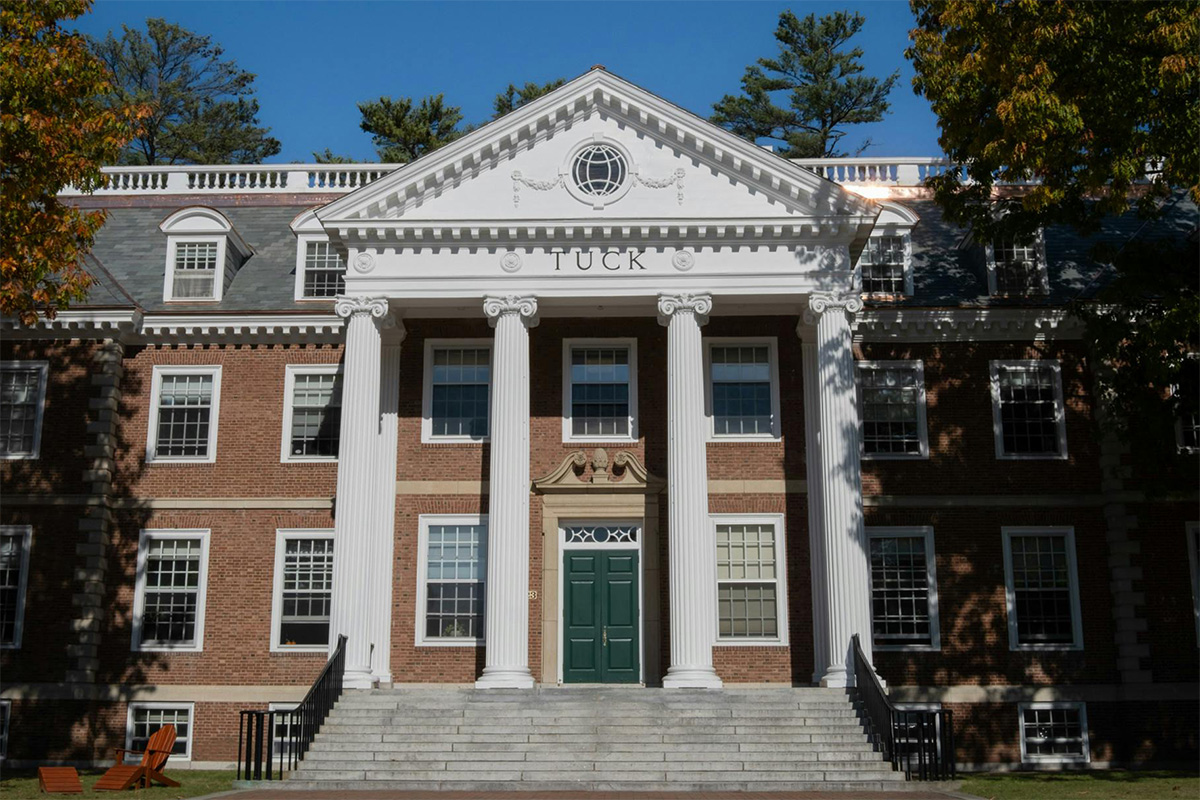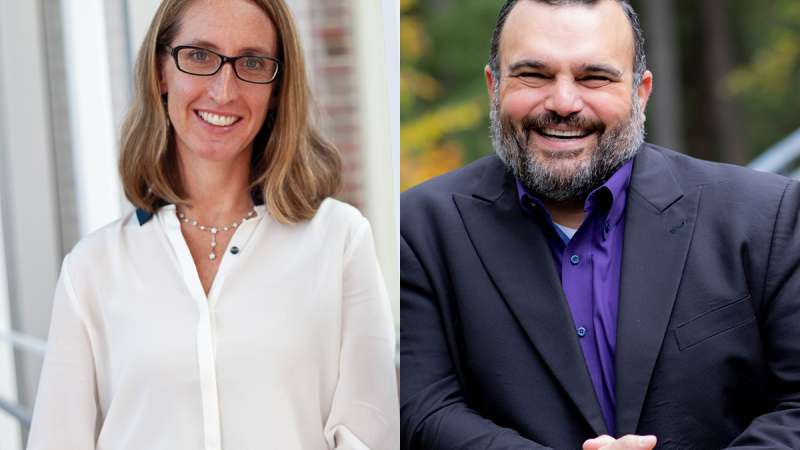
Tuck Business Bridge: Connecting Liberal Arts Students to the Business World
Photo by Michael Bond | The Dartmouth
This article was previously posted on The Dartmouth.
Regardless of Dartmouth’s liberal arts approach to education, the Tuck School of Business’ presence on campus means that undergraduates have a resource to strengthen their pre-professional skills, particularly through the Tuck Business Bridge Program, also known as Tuck Bridge. During an intense three-week academic experience, top-ranked Tuck MBA faculty teach attendees a fundamental business curriculum and connect students to a cohesive network of peers and alumni.
According to Diana Volk, the associate director for alumni engagement and career development at Tuck, the program began as a way to “give liberal arts students the opportunity to graduate [with] the same business foundation” as their peers who attend schools “where they can major in business.”
Volk added that Tuck Bridge touches on marketing, finance, accounting, spreadsheet modeling and business strategy, which students “might not get at a liberal arts institution,” depending on their major. Tuck Bridge also offers electives, which span a range of business-adjacent topics from entrepreneurship and leadership to real estate, according to its website.
The program runs four three-week sessions — twice in the summer, once in December and another virtually in January — and hosts over 100 students in each session. Angie Martinez Moreno ’26, who participated in the program’s first winter session in 2023, said she applied because it “aligned so much” with her interests in business and the healthcare industry.
“I’m actually an econ[omics] major, and I'm also studying biology and classics, so it’s quite a combination,” Martinez Moreno said. “But I’m most passionate about healthcare and finance, so I wanted to find a [program] to merge both interests and learn about healthcare and international finance.”
Samuel Peter ’25 similarly emphasized how Tuck Bridge allowed him to build on his interests in “stocks, economics and financial data” and develop a “good business foundation.” Although Peter studies computer science and geography, he felt the program was a unique opportunity to learn skills outside of his major and further his post-graduate career aspirations in business strategy.
More than a matter of practicality, many students gravitate towards Tuck Bridge’s high level of teaching and rigorous curriculum. According to Martinez Moreno, her classes lasted from “8 a.m. to 4 p.m.” in addition to a collaborative “team project” which students worked on in the evenings.
Despite their schedule’s intensity, some Tuck Bridge students appreciate the tempo of the workload. Peter described his classes in the program as “a fun learning experience.”
“I really enjoyed learning about strategy and economics,” Peter said. “The spreadsheet modeling class was very helpful — when you learn how to actually use Excel, you realize how many people don’t utilize it at full capacity.”
Tuck Bridge also offers students a chance to network with the broader business community. According to Martinez Moreno, “everyone” she met during the Tuck Bridge Program was “so approachable,” which allowed her to form “really strong connections” with the faculty members, peers and MBA mentors she is still in contact with today.
Volk also highlighted the program’s expansive network, which, she explained, includes over 8,000 alumni. The Tuck Bridge website also advertises the program’s recruiting platform, CORE, where businesses can look at Tuck Bridge’s resume database and “post internship and job descriptions for current openings.”
Tuck Bridge’s expansive alumni network is also a testament to its diverse learning environment. International students are a significant part of each cohort, particularly in the summer program, where, on average, “56 different institutions are represented,” Volk said.
Martinez Moreno added that her peers’ diversity enhanced her experience because of the way it allowed her to network with people from various backgrounds and gain unique insights.
“There were lots of people coming from different majors, not just economics. There was also diversity in backgrounds and ethnicity, helping make [Tuck Bridge] an enriching experience,” Martinez Moreno said. “I met [students] from schools I’d never interacted with. My team was made up of different class years and majors, so you would really get to know a lot of people.”
Ultimately, Tuck Bridge’s long-term value is demonstrated in how it influences students’ future aspirations and career paths. Tuck Bridge equips students with practical skills while providing insight into the business world.
“Because of this program, I decided that I do want to do an MBA,” Martinez Moreno said. “I was very uncertain about it [before], and this taught me that I definitely want to do one.”


